Social Walking & Stretch
Ready to get fit and mobile?
This group starts with 30 minutes of walking the hills of Gawler and finishes with 1 hour of stretching in the gym. Perfect for those who want to improve their flexibility and easy way to add exercise into your week.
Suitable for all fitness levels and goals our friendly exercise physiologists will cater the group to your needs.
Join now to begin your fitness Journey






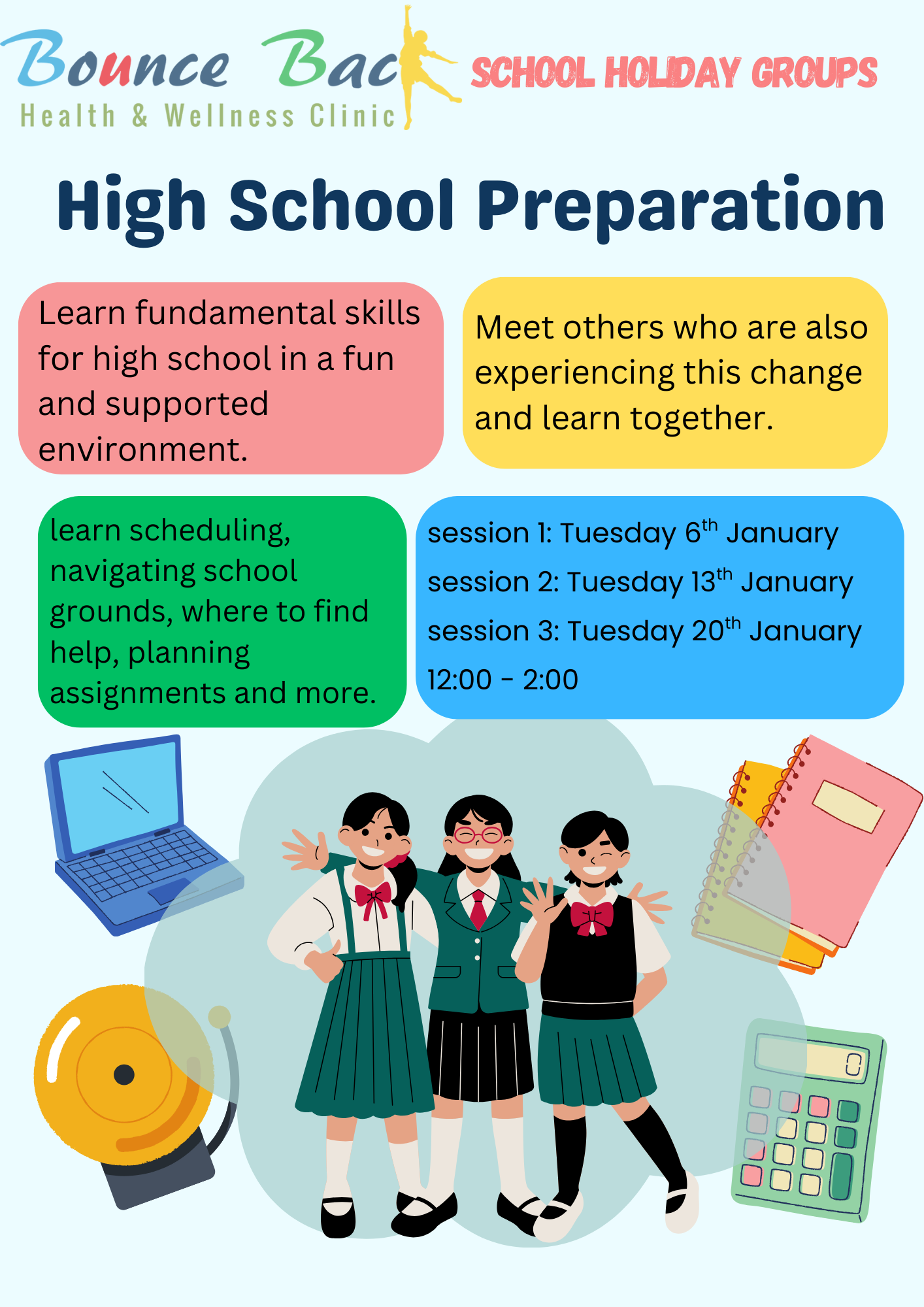
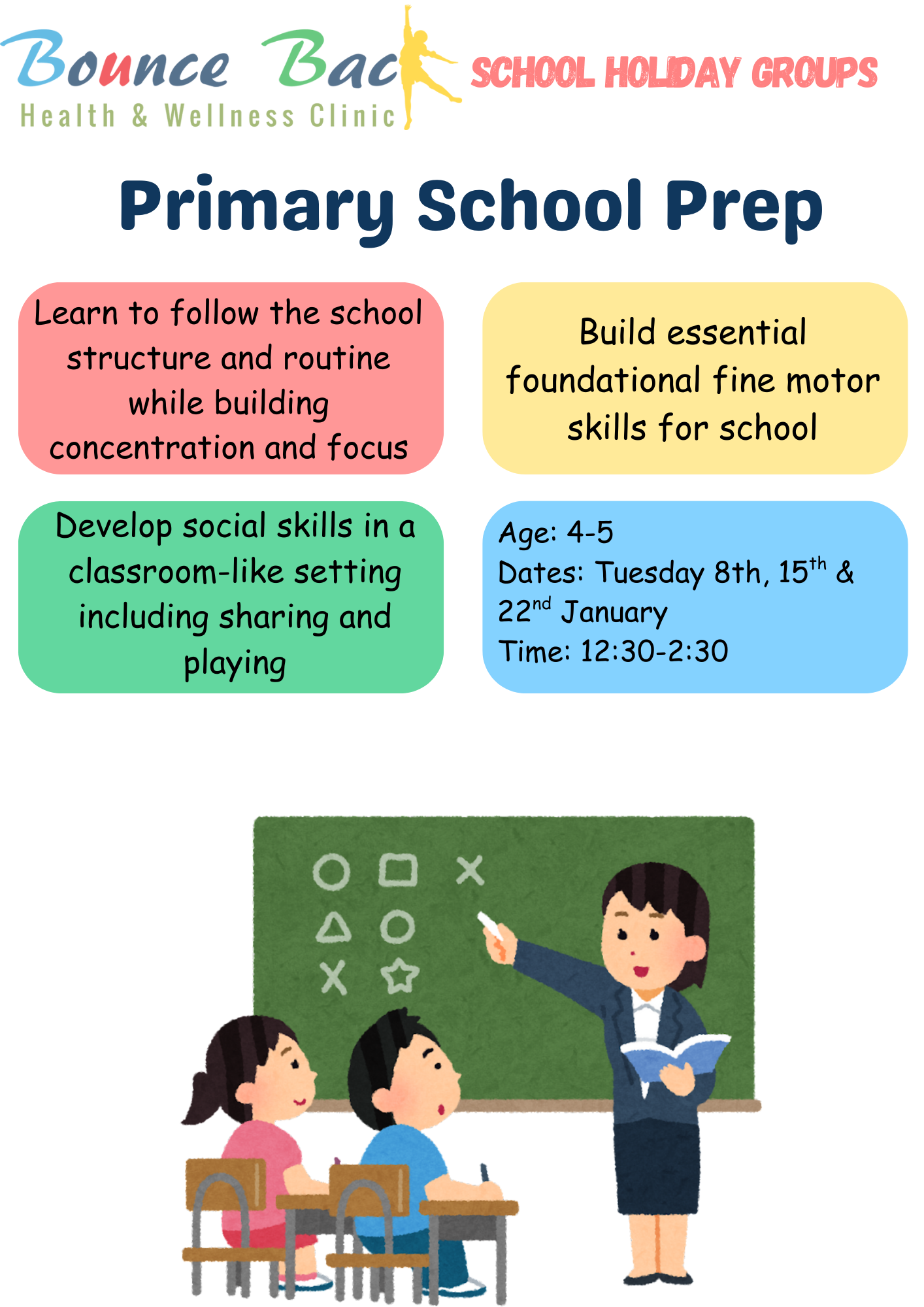

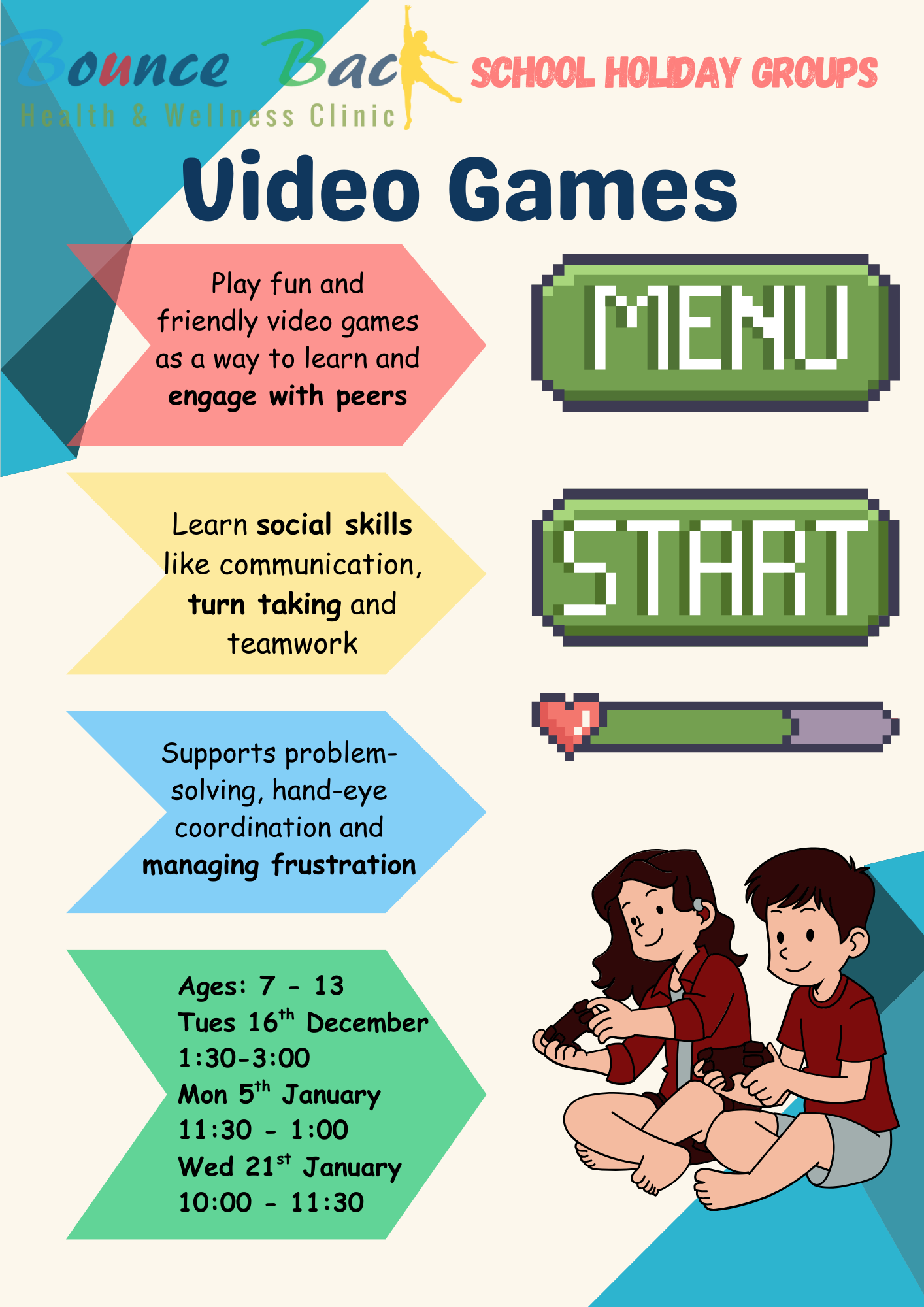
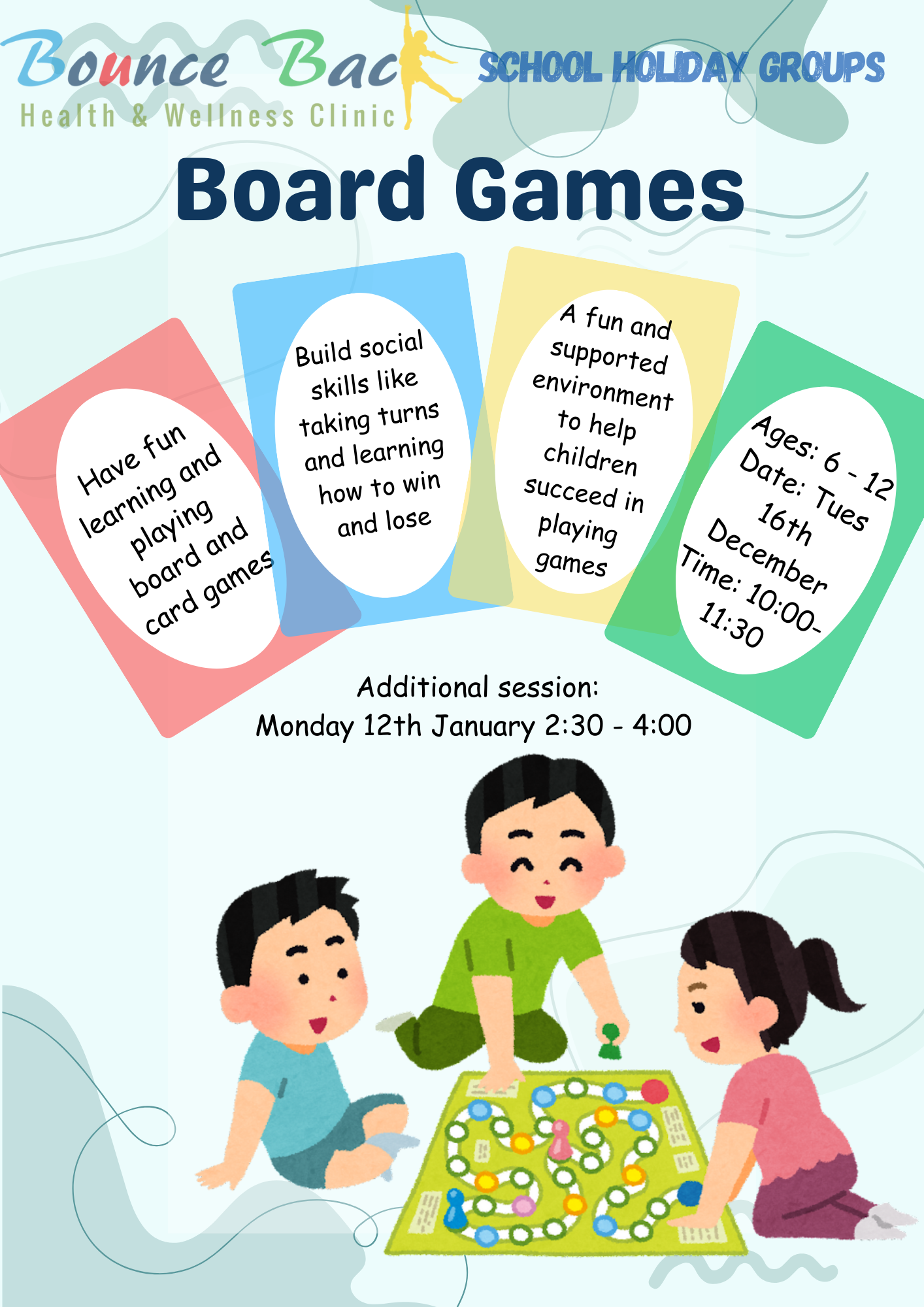
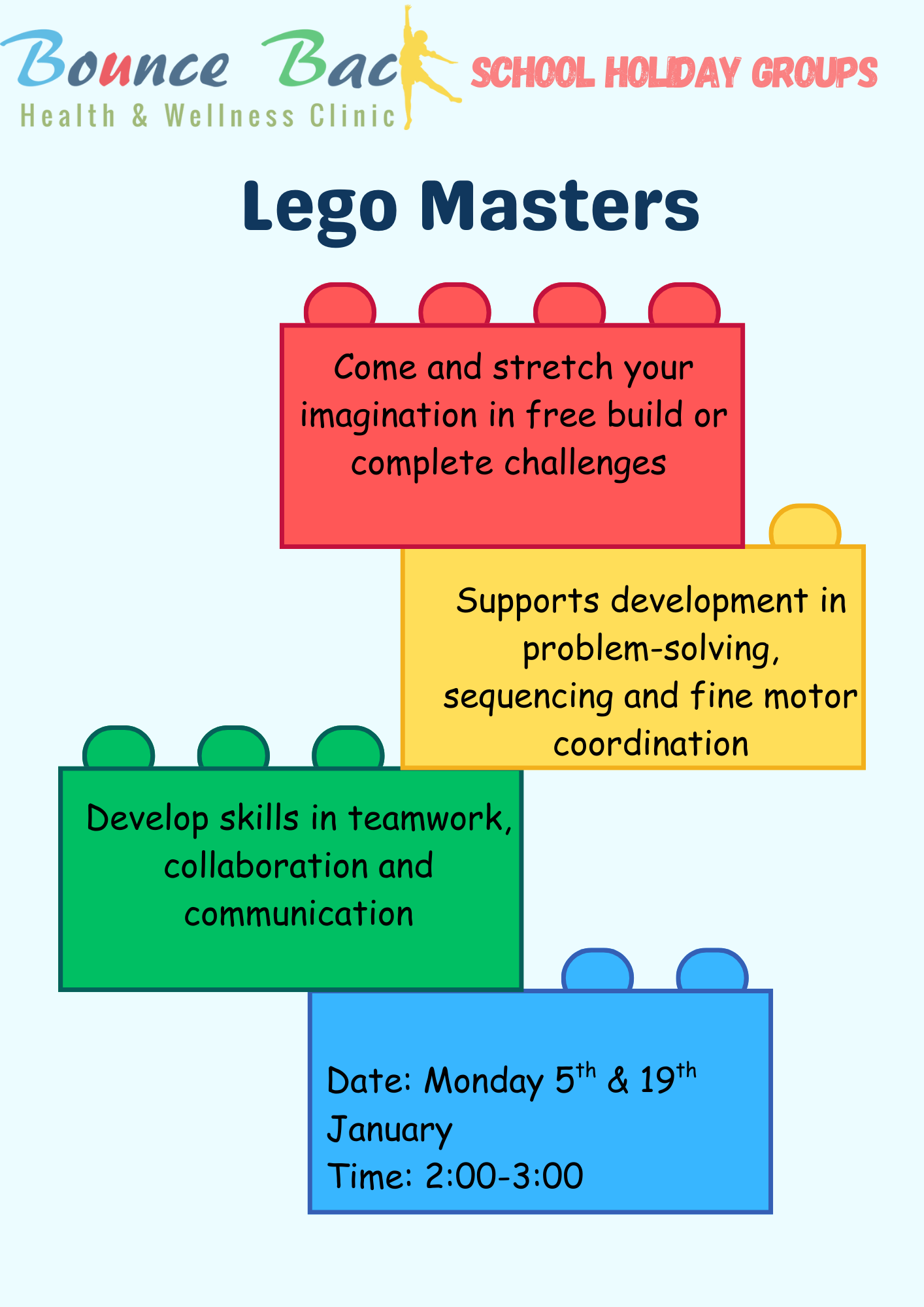

Exciting January School Holiday Groups at Bounce Back Health!
Dear Families,
Our fun and supportive January School Holiday Group programs are starting soon – perfect for building skills, making friends, and having a great time!
Here are the details:
Primary School Prep (Ages 4-5) Tuesdays: 6th, 13th & 20th January Time: 12:30pm - 2:30pm
High School Preparation Tuesdays: 6th, 13th & 20th January Time: 12:00pm - 2:00pm
These school prep sessions are ideal for kids entering primary or high school in 2026, or those who transitioned in 2025 and could use extra support!
Junior Chefs Thursdays: 8th, 15th & 22nd January Time: 10:00am - 12:00pm
Video Games (Ages 7-13) Monday 5th January: 11:30am - 1:00pm Wednesday 21st January: 10:00am - 11:30am
Lego Masters Mondays: 5th & 19th January Time: 2:00pm - 3:00pm
Spaces are limited – please let us know ASAP so we can arrange enough clinicians to support the groups!
NDIS funding may apply. Secure your child’s spot today! Call: (08) 8520 6244 Email: infoge@bouncebackhealth.com.au
FOR ADITTIONAL DETAILS / BOOKING: bouncebackhealth.com.au/class-types/school-holiday-programs/ ... See MoreSee Less
0 CommentsComment on Facebook
... See MoreSee Less
0 CommentsComment on Facebook
📘 What is a Learning Disorder?
A learning disorder is not the same as Autism or ADHD. It means a child
may have difficulties in specific areas like reading, writing, spelling,
or math — even though their overall intelligence is not affected.
❗ Why it matters:
Sometimes parents notice their child struggling at school and think
they’ll “grow out of it.” But if left unsupported, learning
disorders can affect confidence, school attendance, anxiety, and
long-term challenges in daily life.
🎯 The good news:
With the right strategies, children can learn in ways that work for
them. Occupational Therapists (OTs) are highly skilled in supporting
children with learning disorders by building the foundations for
attention, memory, motor skills, and classroom success.
Want personalized support? At Bounce Back Health, our experienced
Occupational Therapists love to help children and adults build life-changing
skills.
📞 Call us: 08 8520 6244
📧 Email: infoge@bouncebackhealth.com.au
#LearningDisorders #Dyslexia #Dysgraphia #Dyscalculia #ChildDevelopment
#OccupationalTherapy #BounceBackHealth #NDISProvider #SchoolSupport
#EarlyIntervention ... See MoreSee Less
0 CommentsComment on Facebook
✨ CREATE A CALM BOX ✨
A simple but powerful tool to support emotional
regulation at home in a quiet space. Fill a box with comforting items—like fidgets,
soft toys, calming scents, or favourite music. When big feelings arise, encourage
children (or adults!) can use their calm box to ground themselves, feel
safe, and regain control. 🌈💛
Want personalized support? At Bounce Back Health, our experienced
Occupational Therapists love to help children and adults build life-changing
skills.
📞 Call us: 08 8520 6244
📧 Email: infoge@bouncebackhealth.com.au
#emotionalregulation #calmbox #occupationaltherapy #ChildDevelopment
#NDIS #parentsupport #autismsupport #sensorystrategies #BounceBackHealth ... See MoreSee Less
0 CommentsComment on Facebook
Understanding big emotions can be tough, but what if we made learning about
them a fun game?
One of our favourite ways at BBH to do this is with "Pretend
Play with Emotion Faces."
How to do it at home:
* Gather some paper, markers, and craft sticks.
* On the paper, draw a bunch of faces
showing emotions—happy, sad, angry, surprised, silly, scared, etc
* Cut them out and tape on a stick
* Time to play! Now, you can use these faces in a few ways. You can
take turns making the sound that goes with each emotion, or tell a short
story using a few of the faces. Another fun idea is to have your child
pick a face and tell you about a time they felt that way.
This simple activity helps children recognize and express their feelings
in a safe and playful way. It teaches them that all emotions are okay
and gives them the language to talk about how they feel.
Need more support?
Want personalized support? At Bounce Back Health, our experienced
Occupational Therapists love to help children and adults build life-changing
skills.
📞 Call us: 08 8520 6244
📧 Email: infoge@bouncebackhealth.com.au
#EmotionalRegulation #OccupationalTherapy #ChildDevelopment
#KidsActivities #SocialEmotionalLearning #SensoryPlay #ParentingHacks
#BounceBackHealth #Gawler #SouthAustralia ... See MoreSee Less
0 CommentsComment on Facebook